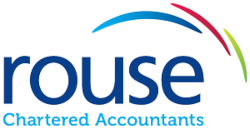You can find out more about our self assessment service here or contact us to discuss how we can help with your self assessment or for a quotation.
Click to jump to section:
- Who needs to file a self assessment?
- When do I need to submit my self assessment?
- What happens if I miss the deadline?
- I haven’t filed before, how do I complete my first self-assessment?
- What information do I need to complete my self assessment tax return?
- How should I keep and store my records?
- When and how do I pay the tax due?
- What if I am unable to pay the tax due?
- I receive untaxed income from abroad, why have HMRC sent me a notice to file a self assessment return?
- I have received an email about a tax refund or to make a payment to HMRC, is it a legitimate message?
- What tax reliefs are available when completing a self assessment return?
- I am self employed or have rental income, what expenses can I claim through my self assessment?
- Can I claim expenses for working from home?
Who needs to file a self assessment?
Generally speaking, if you are self employed (including being in a partnership) or a Company Director, you must register.
There are also certain types of income that people receive that may mean they need to complete their self assessment. You can see our quick self assessment checklist here to consider if you need to complete a self assessment.
For example, if you let out a residential property and your net rental income after expenses is more than £2,500 in a year (or is more than £10,000 before expenses) then you will need to make a tax return.
When do I need to submit my self assessment?
If you are submitting a paper return, it must reach HMRC by the 31st October. If you submit your tax return online you have until midnight on the 31st January.
However, filing earlier is always a good policy and we explain the benefits of filing your self assessment early here.
What happens if I miss the self assessment deadline?
There is an immediate £100 penalty for filing your self assessment late, with further penalties applied after certain periods of time, as shown below:
- 1 day – you’ll have to pay a penalty of £100
- 3 months – you may have to pay a penalty of £10 a day, for a maximum of 90 days (£900)
- 6 months – you may have to pay a further penalty of 5% of the tax you owe or £300, whichever is greater
- 12 months – you may have to pay a further penalty of 5% of the tax you owe or £300, whichever is greater – in some cases, you may have to pay up to 100% of the tax you owe
These penalties are in addition to any penalties for paying your tax late.
All these penalties can be appealed, for example if you have a reasonable excuse, special circumstances apply, or you took reasonable care to get your tax right. If you make an appeal, you must usually do so within 30 days of the date of the penalty notice.
I haven’t filed before, how do I complete my first self assessment?
If you’ve never completed a self assessment in any form, the first thing you need is a ten-digit Unique Taxpayer Reference (UTR) code.
The UTR can take some time to be sent to you, so make sure that you leave enough time to meet the filing deadline. HMRC recommend that you give yourself at least 20 working days to receive your number.
When you have received your UTR you will be able to set up your GOV.UK gateway account in which you can prepare and file your self assessment return.
You must usually register with HMRC for self assessment by 5 October following the end of the tax year in which the income or gains first arose, otherwise penalties may be applicable.
What information do I need to complete my self assessment tax return?
Your tax return for any tax year must contain details of all that year’s taxable income and gains. Here is some of the typical information you might need:
- Details of your self-employment income and expenses to work out your trading profit or loss for the year
- Details of your property income and expenses to work out your rental profit or loss for the year
- Your employment and pensions income information, including forms P60, P11D and P45 from any jobs you have had
- Your interest certificates from banks or building societies
- Details of your pension contributions made to relief at source schemes
- Details of any chargeable capital gains you made in the year
Whilst you do not have to send original documents to HMRC, if HMRC ask questions later, you might need to use them to show you took reasonable care to get your return right.
For self-employed and property income, you need to be able to show how you have worked out your profit. So, you need to keep records such as:
- Invoices (bills) for work you have completed
- Receipts for expenses you have paid
- Bank statements
- Statements from letting agents or details of rental income for property (if you don’t use an agent)
- Information showing how you have taken account of any private use of things used in the business (for example, mileage logs for a vehicle used both in the business and privately)
If you are self-employed or rent out a property, you must keep records which support your tax return for five years after the normal 31 January deadline.
How should I keep and store my records?
You can currently keep your records on paper or digitally. But please be aware that HMRC are planning to introduce Making Tax Digital, which will mean you have to keep digital records for things like trading and property income.
Making Tax Digital (MTD) is being introduced for Income Tax Self Assessment (ITSA) for individuals and landlords with income over £50,000 from April 2026.
It is therefore a good idea to start thinking about this now, so you are ready for it in future. You can find software that is compatible with Making Tax Digital for Income Tax at Gov.uk here. We will be in touch with clients in due course to ensure they are ready for this change.
When and how do I pay the tax due?
Usually self assessment payments (which can be made up of tax, National Insurance and student loan repayments) are due by 31 January following the end of the tax year to which they relate. For example, tax due for the current 2021/22 tax year is due for payment by 31 January 2023.
Some taxpayers need to make instalment payments towards their annual self assessment bill for the following year. These are called payments on account. Generally speaking, if you come within the payment on account regime you will need to make payments on 31 July in each tax year as well as on 31 January.
There are various ways to settle any payments due and these include cheque, bank transfer, debit card, but not personal credit card.
Make sure you have the correct reference number when you make any payment so HMRC correctly allocate it to your account. This will be your 10-digit UTR (Unique Taxpayer Reference) number, usually followed by the letter K.
What if I am unable to pay the tax due?
If you are having difficulty meeting a tax bill or know that you will have difficulty paying a bill that will be due in the near future, you should contact HMRC as soon as possible.
HMRC can allow you to spread payments over a period of months depending on your personal circumstances and what you can afford to pay.
If you agree with HMRC to spread your payment over a period of time and stick to it, you should not be charged late payment penalties.
I receive untaxed income from abroad, why have HMRC sent me a notice to file a self assessment return?
If your overseas income hasn’t been taxed in the UK, it needs to be included in your total income for your overall tax liability to be worked out. You will need to complete a self assessment tax return.
I have received an email about a tax refund or to make a payment to HMRC, is it a legitimate message?
It is that time of year again when scammers targeting unsuspecting taxpayers begin to increase their activity. So, we are reminding clients to remain vigilant.
In many cases the fraudsters are sending scam messages via telephone, email and SMS text messages, which claim that taxpayers are entitled to a rebate. These messages go on to request that they provide their personal and account details in order to make their claim.
Please note that HMRC will only ever inform individuals of a tax refund by post or through their employer. You will never get an email, text message, call or voicemail from HMRC, which tells you about a tax rebate or penalty, or asks for your personal or payment information.
What tax reliefs are available when completing a self assessment return?
Claiming higher rate tax relief on charitable donations and personal pension contributions are commonly included on tax returns along with investments in a number of tax-advantaged business schemes like EIS and SEIS which provide start-up funding and generous tax reliefs.
I am self employed or have rental income, what expenses can I claim through my self assessment?
You can claim tax back on some of the costs of running your business – what HMRC calls allowable expenses, such as travel costs, stationery, marketing and accountants’ fees. These appear as costs in your business accounts deducted from the profit you pay tax on.
On the Gov.uk website, you can find the most common expenses you can claim for self-employment and the most common expenses you can claim for if you rent out a property.
Can I claim expenses for working from home?
If you were told by your employer to work from home during the pandemic, even for just one day, you can apply for tax relief up to £140 per tax year.
Working from home tax relief was a special measure introduced during the COVID-19 pandemic for both the 2020/21 and 2021/22 tax years, and therefore worth up to £280, to cover the extra costs from working at home, such as higher heating and broadband bills.
However, working-from-home relief rules return to their normal format for the 2022/23 tax year which is much stricter. You can find out more about working from home tax relief here.
Need to complete a self assessment tax return?
You can find out more about our self assessment service here or contact us to discuss how we can help with your self assessment or for a quotation.

Bob has more than 20 years experience in tax covering corporation tax and personal tax compliance and advisory.


